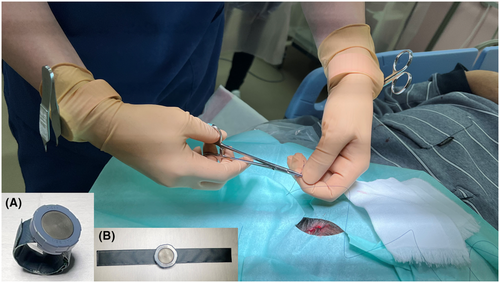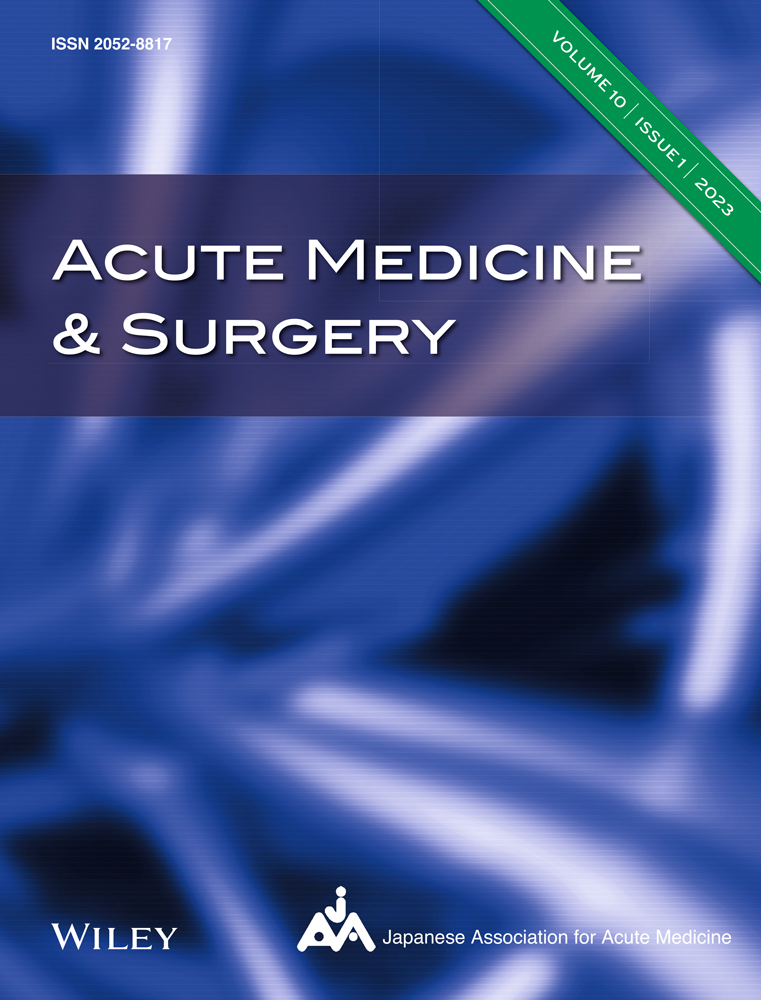Novel magnetic wrist band for comfortable suturing by surgeons
Emergency physicians often drop critical tools such as forceps, scissors, and receivers on the floor when suturing wounds in emergency room settings. A novel tool-holding device for surgeons may help in resolving these issues. In emergency rooms, physicians have restricted space wherein they perform urgent and critical procedures under stressful conditions.1 Traditionally, emergency doctors deal with this problem by gripping several tools in one hand, or by setting some tools down on nearby flat surfaces when suturing the wounds.
To this end, our group has developed unique bilateral magnetic bands that can firmly attach a pair of forceps on the right wrist and a pair of scissors on the left wrist of an operating room surgeon, which can prevent emergency physicians from dropping their tools (Fig. 1). The wrist bands are not appropriate for all tools, such as those composed only of titanium, but most surgical devices are magnetic. The apparatus is composed of a band (22 × 200 mm) and a short magnet cylinder (23 mm diameter magnet surrounded by a 35 mm plastic sheath). When the band is snapped onto the wrist, it wraps around the wrist, and is done prior to the emergency physicians putting on their gloves. The system is produced by Takigen MFG CO., LTD (Tokyo, Japan) and Hamamatsu University. In our experience so far, the band system holds tools such that they do not interfere with the surgeon's abilities to suture wounds efficiently. In the future, we need to interview more surgeons about its level of comfort.

Magnetic wrist bands are often used at construction sites and in beauty salons. The workers in these settings often use several metal tools that are similar to those of surgeons, although there was no available literature to our knowledge. Medical doctors lack available space on which they can place these tools in emergency rooms. If a container is prepared wherein these tools can be stored, it often becomes inconvenient to replace them after every use. Doctors who use our medical magnet bands reported feeling less stressed because they do not have to worry about dropping their tools. Our bands can also be used for handling suture needles, and emergency physicians can temporarily keep them on the magnet.
In recent years in Japan, many workplace reforms have been advocated for emergency staff in an effort to prevent burnout.2 Due to staffing shortages, emergency physicians often treat patients alone, especially during night shifts. We intend that our magnetic bands become crucial tools for decreasing stress for emergency physicians and thus aid in overcoming labor shortages in emergency medical settings.
DISCLOSURE
Conflict of interest: None.




